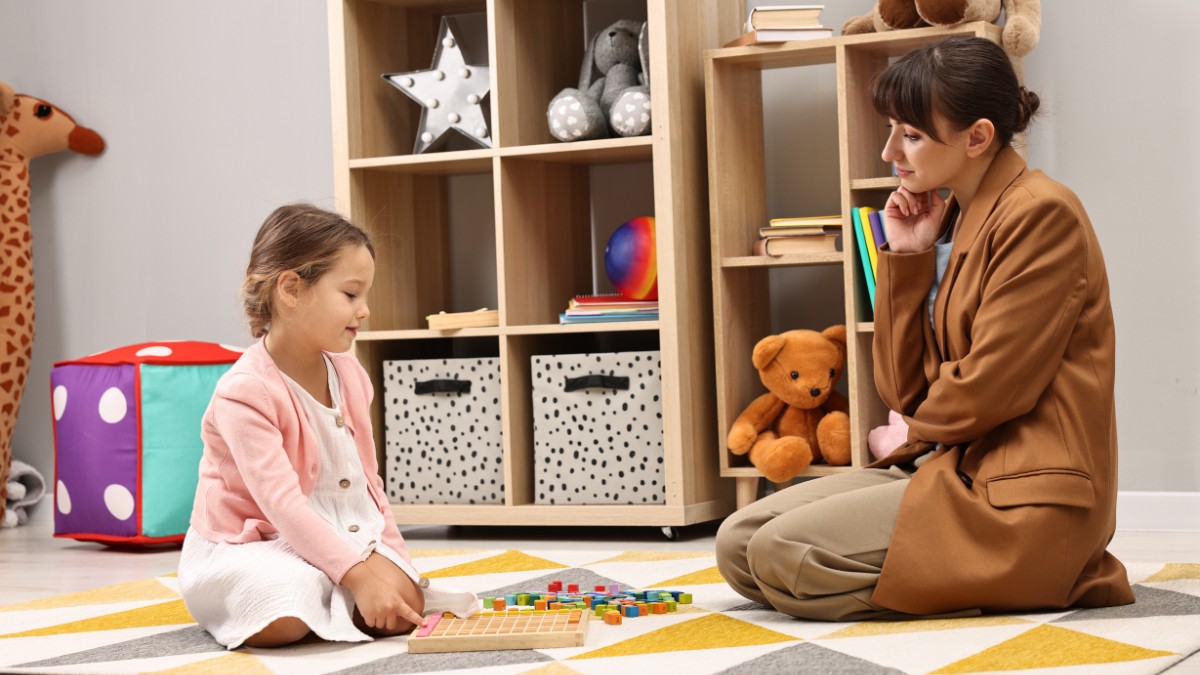How ABA Therapy Supports Independence in Autism
Discover strategies for supporting independence in autism, promoting skills, routines, and inclusive environments.
.jpg)
How ABA Therapy Supports Independence in Autism
Understanding Autism and Independence
Overview of Autism
Autism Spectrum Disorder (ASD) is a developmental condition that affects how individuals perceive the world and interact with others. It presents a wide range of characteristics, which vary from person to person. Some common features of autism include difficulties with social communication, restricted interests, and repetitive behaviors. The degree of impairment can differ significantly, leading to many individuals having unique needs and capabilities.
Importance of Independence for Individuals with Autism
Supporting independence in individuals with autism is essential for their personal development and overall quality of life. Gaining independence not only fosters self-esteem but also empowers individuals to make their own choices and enjoy a sense of responsibility. The journey towards independence can lead to inclusive participation in community life and improved well-being.
Independence fosters a sense of autonomy, which can significantly impact the lives of individuals with autism. As they learn to navigate the world on their own, they are better equipped to handle daily challenges and seize opportunities that come their way.
Promoting Independence in Daily Life
Fostering independence in daily life for individuals with autism involves implementing structured routines and developing essential life skills. This section focuses on two key strategies: establishing routines and predictability, and developing life skills and self-care habits.
Establishing Routines and Predictability
Creating a consistent daily routine is fundamental in supporting independence for individuals with autism. Routines provide a sense of security and predictability, which can greatly reduce anxiety and help with transitions between activities. A well-defined schedule can assist in building independence by allowing individuals to anticipate what comes next.
Visual aids, such as charts or calendars, can enhance understanding and help individuals follow the routine. Breaking down tasks into manageable steps supports learning and makes routines easier to navigate.
Developing Life Skills and Self-Care Habits
Equipping individuals with essential life skills fosters independence in different domains of daily life. Teaching self-care habits is particularly important, as these skills are critical for autonomy.
Incorporating activities relevant to the individual's interests can enhance motivation and engagement. Regular practice and positive reinforcement can help in mastering these life skills and promote self-sufficiency.
By focusing on establishing routines and developing life skills, individuals with autism can gain confidence and competence in their daily lives, ultimately supporting their independence.
Supporting Communication and Social Skills
Effective communication and social skills are crucial for individuals with autism to promote their independence. Targeting these skills can lead to improved interactions and a greater sense of autonomy.
Improving Communication Abilities
Enhancing communication skills involves various approaches tailored to meet the individual's unique needs. Techniques may include the use of assistive technology, visual aids, and structured teaching methods. These strategies empower individuals to express their thoughts and feelings more effectively.
Enhancing Social Interactions
Social interactions can be challenging for individuals with autism. Fostering social skills provides them with the tools to navigate social situations more comfortably and succeed in building relationships. Programs that focus on social competence can be beneficial.
Supporting independence in autism significantly consists of improving communication abilities and enhancing social interactions. By implementing these strategies, individuals can thrive in their daily lives and form meaningful connections with others.
Tailoring Support for Individual Needs
Supporting independence in autism requires an understanding of individual needs and preferences. Personalized strategies can make a significant difference in promoting autonomy and self-sufficiency. Collaboration with therapists and professionals is also essential for optimizing these strategies.
Personalized Strategies for Independence
Creating individualized plans that cater to specific skills and challenges can enhance independence for individuals with autism. Strategies may include:
Each strategy should be tailored based on the person's abilities, interests, and personal experiences. Continuous assessment and adjustment of these strategies will ensure they remain effective.
Working with Therapists and Professionals
Collaboration with healthcare and educational professionals is key to effectively supporting independence. Various specialists can provide valuable insights and strategies, including:
These professionals can work together to create a cohesive support plan, ensuring that all aspects of the individual's development are addressed. Regular communication among all involved parties will enhance the effectiveness of strategies and provide a more supportive environment.
Tailoring efforts to meet individual needs plays a crucial role in fostering independence for those on the autism spectrum.
Creating Inclusive Environments
Fostering independence for individuals with autism is greatly enhanced by creating supportive and inclusive environments. This includes designing spaces that consider sensory needs and providing access to valuable resources.
Sensory-Friendly Spaces
Sensory-friendly spaces are designed to minimize sensory overload. These areas consider the unique needs of individuals with autism, making environments more comfortable and manageable. Factors such as lighting, sound, and textures play a significant role in creating these spaces.
Creating sensory-friendly spaces empowers individuals with autism to engage in daily activities while feeling safe and secure.
Access to Supportive Resources
Having access to supportive resources is crucial for those promoting independence in autism. Various tools and services can aid individuals in their journey towards greater autonomy.
Ensuring that individuals and their families have access to these resources not only supports independence but also enhances overall quality of life. This holistic approach is vital in nurturing the autonomy of those on the autism spectrum.
Celebrating Achievements and Progress
Recognizing progress and achievements in the journey towards independence for individuals with autism is vital. Acknowledging milestones can significantly enhance motivation and build confidence, ultimately supporting independence in autism.
Acknowledging Milestones
Celebrating milestones, no matter how small, can provide a sense of accomplishment for individuals with autism. These milestones may include improvements in communication, daily living skills, or social interactions. Establishing a clear framework for tracking and celebrating these achievements can bolster motivation and further encourage independence.
Continuing Support for Long-Term Independence
Sustained support is essential for promoting long-term independence among individuals with autism. As skills are developed and milestones are reached, ongoing encouragement from family, friends, and professionals helps in reinforcing learned behaviors and adapting to new challenges.
By acknowledging achievements and providing continuous support, individuals with autism can build a pathway to greater independence, enhancing their quality of life and personal fulfillment.
Sources
https://www.autismspeaks.org/tool-kit-excerpt/ten-ways-build-independence
https://pathfindersforautism.org/advocacy/pfa-tips-10-ways-to-build-independence



.jpg)
.jpg)
.jpg)
.jpg)
.jpg)






